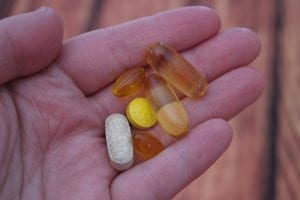The FDA never approved piracetam, yet it has been available for sale for years.
In 2004, the U.S. Food and Drug Administration (FDA) rejected the application of a company hoping to market piracetam as a dietary supplement. It was rejected due to “concerns about the evidence” that the supplement was safe. Despite rejecting piracetam as a dietary option, however, it is now widely available in the market. Piracetam has been marketed as a drug that’s capable of increasing cognitive ability and many take it believing their memory will improve.
A study published this week by JAMA Internal Medicine identified four supplements sold in the U.S. containing piracetam on their labels. These were NeuroPill, Compel, and two others simply labeled ‘piracetam’. The supplement manufacturers are BPS, Cognitive Nutrition, Nootropics and Relentless Improvement.
Piracetam, which the study’s lead author, Pieter Cohen, referred to as “the godfather of all nootropics,” is commonly prescribed in European countries for various disorders, including dementia and cognitive impairment. Yet, there is little evidence to suggest it works and taking the drug can lead to unpleasant side effects such as anxiety, depression, and weight gain.

“Fifteen years ago, the FDA makes it clear this is not a supplement, and for the last fifteen years it’s been sold as a supplement,” said Cohen, a physician with the Cambridge Health Alliance and Harvard Medical School. “So, we have some serious problems, both with compliance with the law and enforcement of the law.”
In February of this year, the FDA issued a dozen warning letters and five online advisory letters to companies illegally selling products that claimed to cure various illnesses. Scott Gottlieb, the FDA’s commissioner at the time, stated, “Simply put, health fraud scams prey on vulnerable populations, waste money and often delay proper medical care.” He also said, “While some companies have stopped selling products after receiving letters, unapproved products continue to be sold to consumers through new websites.”
“The FDA has the power to recall supplements,” Cohen explained, “But when one company stop selling a product another will take its place in the market.”
The JAMA study pointed out, “At least one online distributor even used piracetam’s long pharmaceutical history as a selling point, claiming that it has been studied longer and far more in-depth than most dietary supplements.”
Lon Schneider, director of the Alzheimer’s Disease Center at the University of Southern California, believes, “It’s unregulated and potentially dangerous, and almost always not subject to any empirical, systematic testing.”
The Consumer Healthcare Products Association called the JAMA findings “concerning.” The agency added, “CHPA and our member companies strongly support FDA’s efforts to remove these potentially dangerous products from the market.”
David Seres, director of medical nutrition at Columbia University Irving Medical Center, stated, “There are reputable dietary supplement companies who follow the rules and put what they say in the bottle.” However, he added, “Powerful deregulation took away much of the FDA’s ability to control the industry.” (Congress passed the 1994 Dietary Supplement Health and Education Act, which significantly diminished the FDA’s oversight.)
He added, “For my money, if I were to be designing the whole thing, I would require that dietary supplements, which are substances taken for health benefits, actually have proven health benefits.”
Sources:
Some brain-boosting supplements contain an unapproved drug that could harm users, study warns
New Study Says Some Marketers of Brain Boosting Supplements are Flouting an FDA Ban


Join the conversation!